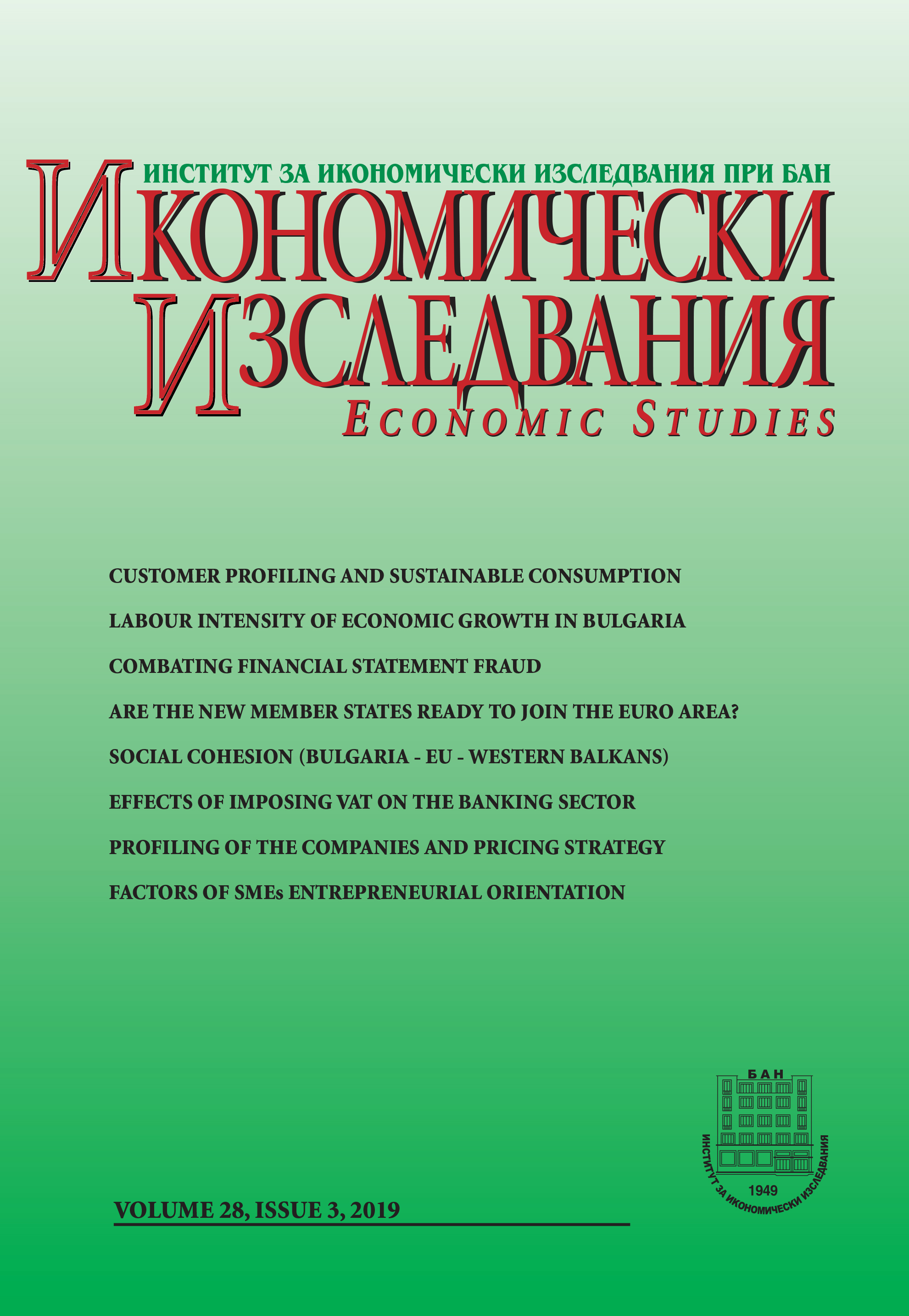Labour Intensiveness of Economic Growth in Bulgaria: Estimates, Impact of the Global Crisis and Drivers
Labour Intensiveness of Economic Growth in Bulgaria: Estimates, Impact of the Global Crisis and Drivers
Author(s): Iglika VassilevaSubject(s): Economy, Supranational / Global Economy, Socio-Economic Research
Published by: Институт за икономически изследвания при Българска академия на науките
Keywords: employment elasticity; economic growth; informal economy
Summary/Abstract: The study of the employment intensiveness of economic growth has become topical in the light of observed high inequalities in Bulgaria, as well as demographic challenges and tightening of the labour market in recent years. To study it, we estimate the elasticity of employment and total hours worked with respect to GDP. We find that economic growth has impact on both indicators of the labour input with a lag of 3 quarters. However, the employment elasticity of GDP (0.81) is much higher than the elasticity of the hours worked with respect to GDP (0.29), which is attributed to a certain inertia in the dynamics of the latter.Our results furthermore suggest that the relationship between economic activity and labour weakens during economic crises. There even seems to be a disconnect between economic activity and employment after the global economic crisis. The latter conclusion is drawn based both on the insignificance of the parameters estimating labour elasticity after the crisis and on an analysis of the breakdown of the GDP per capita growth by productivity and employment growth, where the contribution of extensive employment growth to the increase of the GDP per capita significantly subsides after the global crisis.Finally, estimating the employment elasticity of GDP, we find that it is highly unstable in time and depends on the structure of value added in Bulgaria, but also on labour supply, size of the informal economy and, more generally, on the phase of the business cycle. Taking into account the non-registered sector, in particular, we find that the responsiveness of employment to GDP becomes much higher, quicker and does not essentially change during economic downturns.
Journal: Икономически изследвания
- Issue Year: 2019
- Issue No: 3
- Page Range: 18-41
- Page Count: 24
- Language: English

